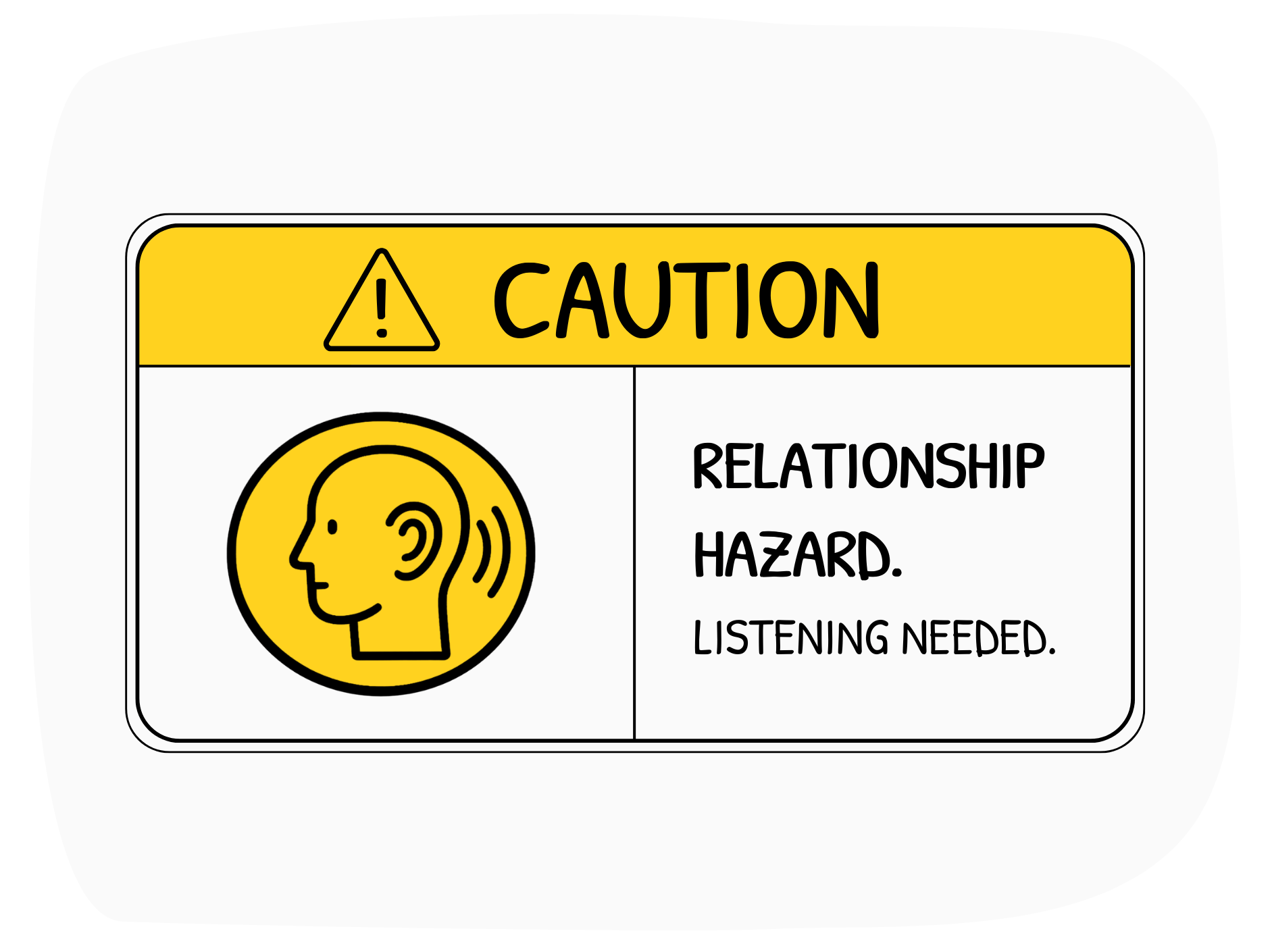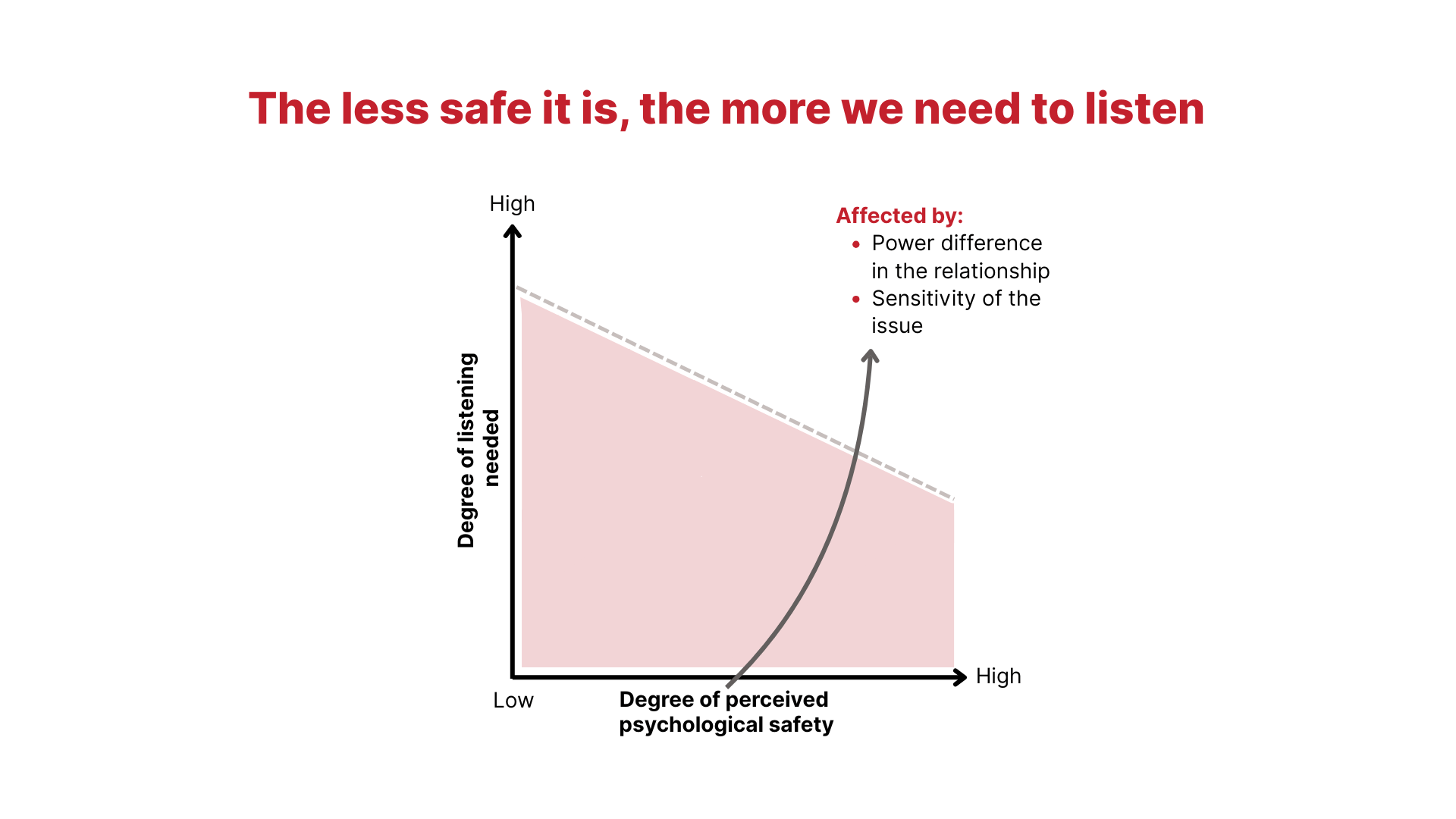The Hidden Skill No One Taught Us: How to Have Better Work Relationships
 Trevor Hudson
16 September 2025
Trevor Hudson
16 September 2025


Human beings are a strange breed. We're remarkably good at pushing away the very things we want most in life: social contact, relationships, and genuine connection. While these things are essential to our well-being, we often rely on instinct and coincidence to create a life of connectedness, making us surprisingly unskilled at creating and maintaining these vital bonds.
Oddly, we're very ill-equipped to navigate relationships. Unlike other critical life skills, we aren't formally taught them in school. We're often kept at arm's length from our parents just as our friendships grow complex, and we rarely discuss these dynamics at work, except under the guise of "motivating" or "influencing."
The reason for this disconnect between our needs and our competence is unique to relationships. As a species, we're geniuses when it comes to meeting other fundamental human needs, such as shelter, food, and warmth. But when it comes to relationships, the human condition gets in the way. They've always been critical for our survival, but perhaps that's the very problem—for millions of years, we were thrust into them out of necessity. The competence of relationships wasn't needed for a long time. Now, of course, we're more estranged, and another ancient drive is to blame: fight or flight.
The Nature of Our Problem Is Our Nature
Erich Fromm was one of the first psychologists to popularise the idea that humans project themselves into abstractions. Our brains tend to treat things that are not a physical threat as though they are one. Conversations about relationships—or any unfamiliar content with deep roots—can trigger our amygdala just as a sabre-toothed cat might have triggered our ancestors'. The irony is that psychologists agree that connection with other human beings helps with feelings of insecurity, depression, and anxiety, and even helps us live longer.
"The deepest need of the human being is to overcome our separateness, to leave the prison of our loneliness." — Erich Fromm
So, we're ill-equipped to deal with relationships and to strengthen them. We rely, to a degree, on them "just happening." But great relationships aren't passive things. This leaves us trapped between isolation and ignorance, and it's no wonder we're in a loneliness epidemic.
Work Relationships are Still Relationships
Relationships, of course, come in all shapes and sizes. We implicitly understand the power of them at work, even if we don't discuss them openly: HR policies protect the right kind of relationships, millions are spent every year on "team building", and we leave bosses we don’t have a good relationship with.
A relationship is simply the quality of the dynamic between you and others. It is the "baseline" for your interactions and determines how frank you can be in your feedback, how much you can trust someone to get a job done or have your back, and how open you can be with people who understand the stresses of your workplace. In short, relationships are everything.
What's remarkable, then, is the degree to which our workplaces tackle this in a roundabout and indirect way. Engagement surveys, mediation, team building, team psychometrics, and away days are all designed to improve the working climate, often without explicitly discussing it.
Overcome the Fear
At Tuff, we train leaders and employees on how to have direct and powerful relationship conversations. Many of our conversations emphasise frankness, knowing that any offence or discomfort can be addressed later. When we train people in relationship conversations, while the need to be frank remains, empathy and an awareness of the other person's safety take on a greater role.
I wonder if there is anything scarier than your boss saying, "We need to talk about our relationship." For the person instigating such a conversation, it's terrifying, but being on the receiving end is both scary and surprising, even if you know in your heart that the relationship is faltering.
We recognise that the conversation will likely be uncomfortable. In some ways, that is the point—bringing up and talking about uncomfortable things builds and defines the relationship.
Many things might make the conversation more unsafe—if the relationship is new, if there are power dynamics, or if there is a "history." In general, we feel safer around people we have known longer, people who do not have power over us, and with whom we have perhaps had successful similar interactions before. It's not just the existing dynamic; the conversation itself might be "unsafe" due to a sense of high stakes.
You Are a Terrible Listener
Everyone is bad at listening. Even at Tuff, we find ourselves falling into listening traps—stepping over feelings, moving on too fast, or assuming we understand.
Truly listening creates a sense of safety. If I want to be heard, I listen. If I want the other person to feel heard, I listen. If I want to create openness, you guessed it, I listen. It is such a rare skill to truly listen that when we are on the receiving end, it feels like a massive investment in us. We sense the other person making the statement "you matter," often unconsciously.
The more unsafe the conversation might seem, the more you need to listen. And as the instigator of the conversation, it will always seem safer to you—you had time to think about it and choose to have the conversation.
Listening is so essential for the relationship conversation that, at first, you might have to completely give up on being heard. Then, being able to play back what you hear—what is said and unsaid—is critical to reinforcing the connection and moving the relationship forward.

Just Bring It Up
The conversation itself is straightforward: Check if the person is open to such a conversation, bring up the relationship, find something to anchor it on (an observation, a feeling, or your own culpability), and then listen.
People often perceive such conversations as a sneaky way to get somewhere else, or as veiled feedback with the expectation that they must change. As with everything we do, the "being" that you bring—how you show up—is essential. And listening is a massive part of that.
Over time, you develop the ability to "listen for safety." This means you can enter any relationship conversation, assuming it might be more unsafe for them than it is for you. Test the water in a frank way and listen. If you hear that they are comfortable and open, you might be able to share more of how it is for you—perhaps things that annoy or upset you. But only if you sense the safety. Alternatively, you might hear a lot of defensiveness and avoidance, in which case you can stay in listening mode.
Check Your Ego
The key with any significant conversation, especially when discussing relationships and dynamics, is not to have assumptions about how the conversation should or will unfold. We often go into any conversation with the view that we know what's "right" or that we have the whole picture. We are wrong.
Listening is a big part of safety (maybe the biggest), but so is ensuring that we don’t react to what we are hearing. We can disagree, but we don’t need to be reactive or assume the conversation is high-risk and could go terribly wrong.
People can sense if you are genuinely committed to the relationship or if you are just using the conversation to give subtle feedback. Going back to our more instinctive roots, we are great at "getting" what is happening with other people as long as our own panic and fear don’t cloud our judgment. Those "forced" groups I mentioned at the beginning could only have thrived if we were well-equipped to read others and sense what was happening with them.
A Challenge
Whenever I discuss relationships with people, whether in a course, on a webinar, or in a casual conversation, I issue a challenge: "Can you start taking relationships as seriously as other things in your life?" How much effort do you put into work, keeping your home clean, your favourite TV programs, or organising a night out? Relationships are more important than any of those things and don't get the attention they deserve.
As soon as you choose to start taking relationships seriously, a name will come to mind. Yes—that one! Talk to them.
